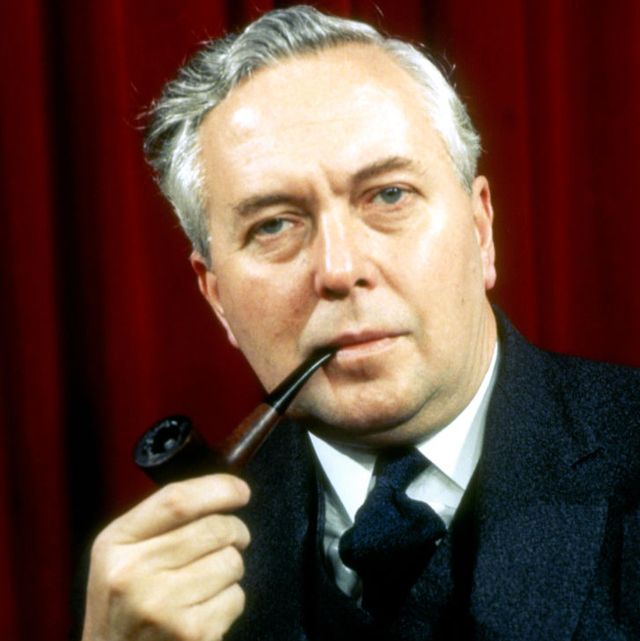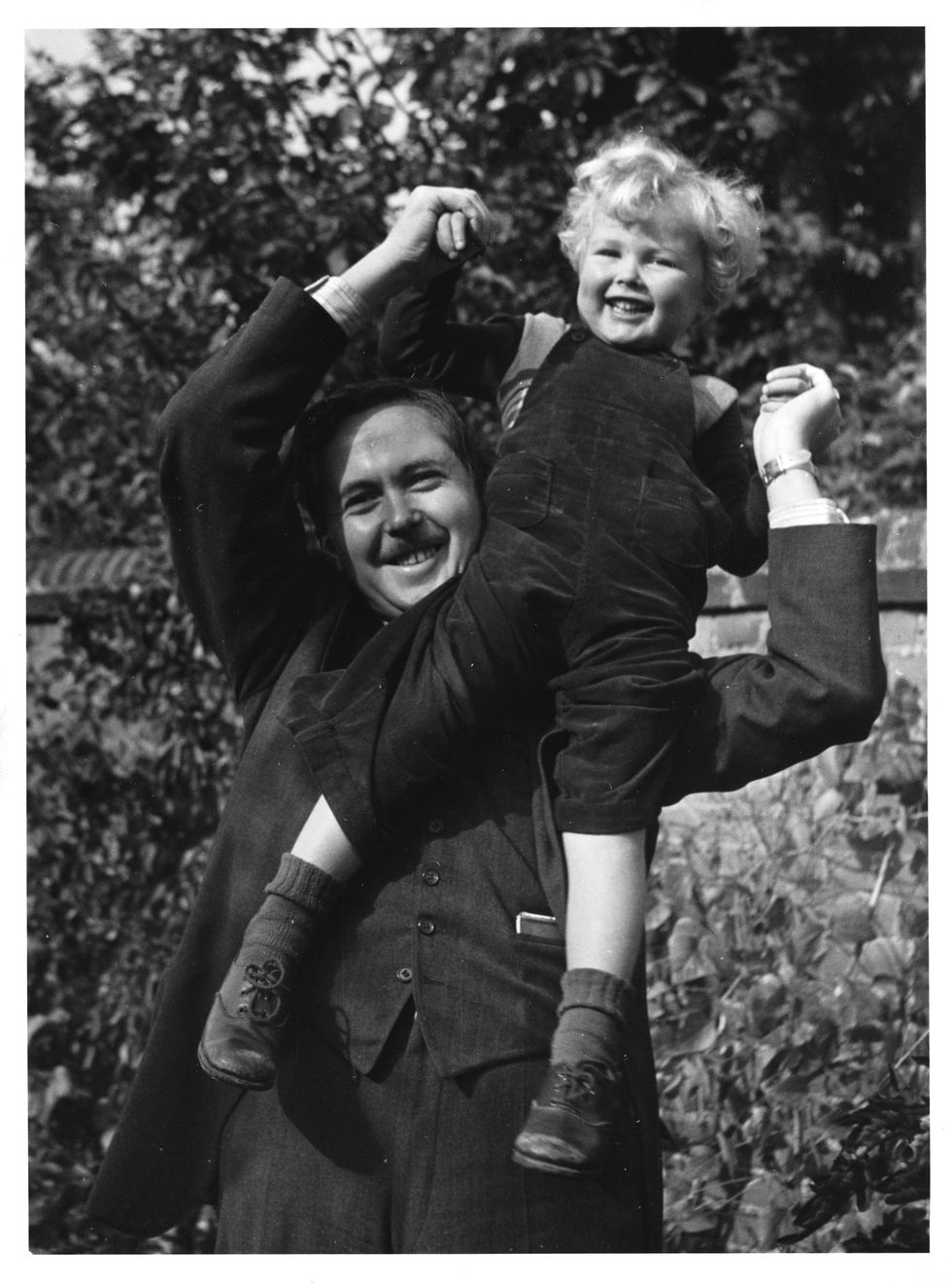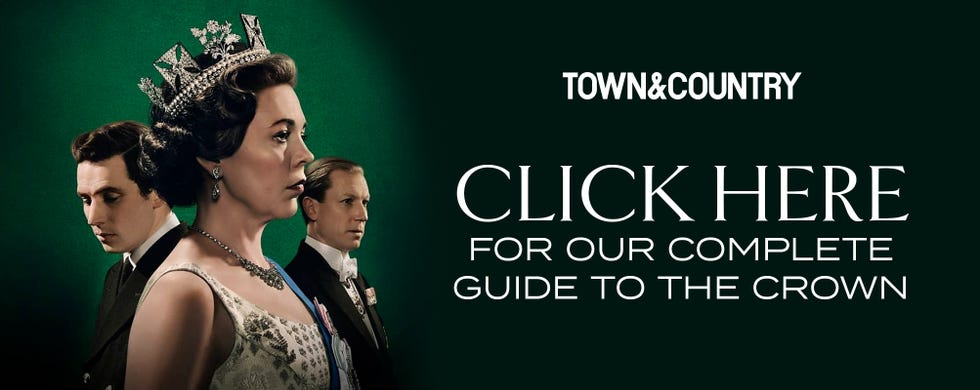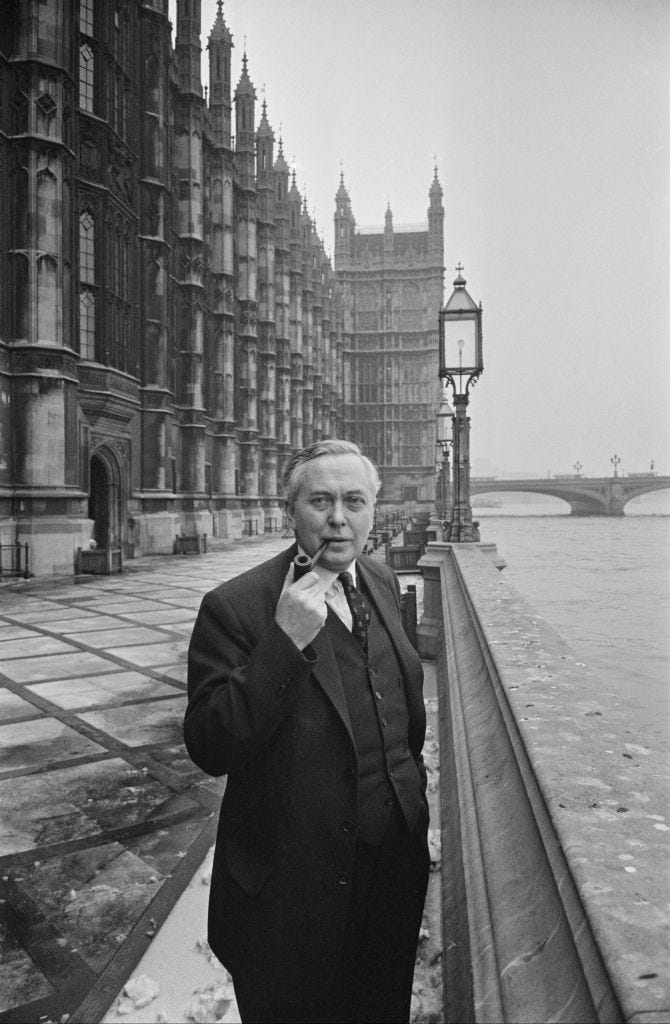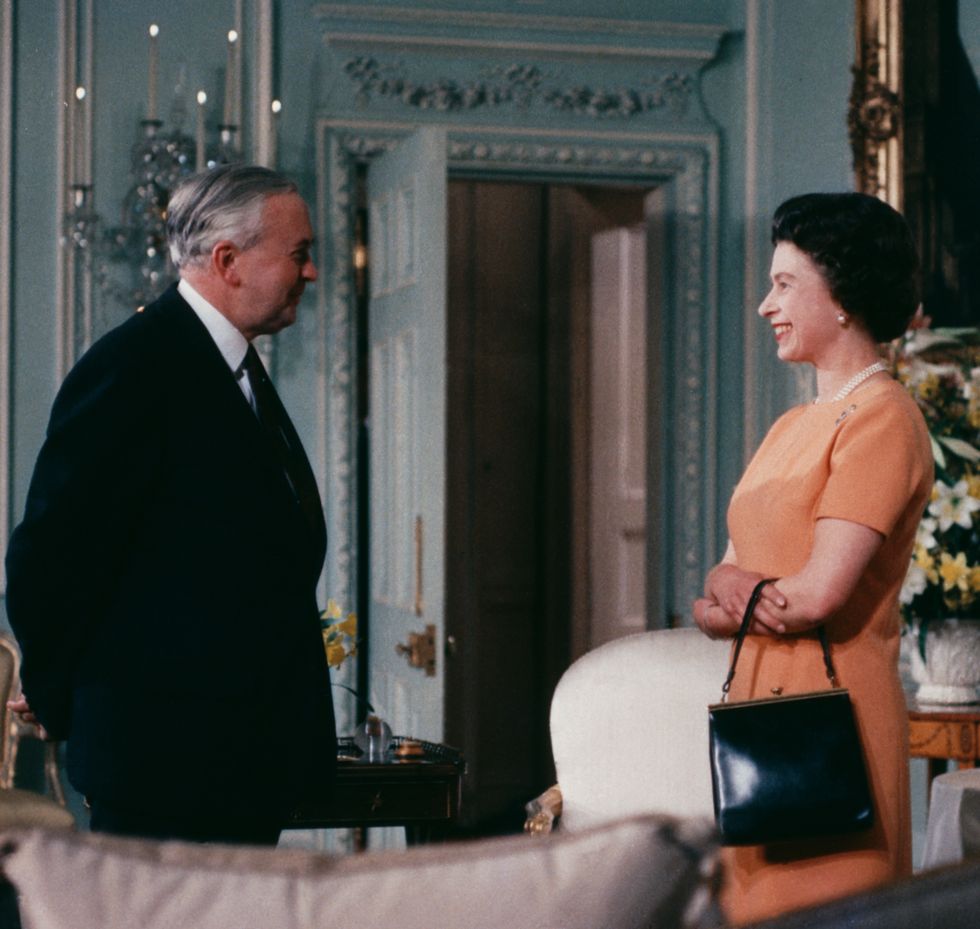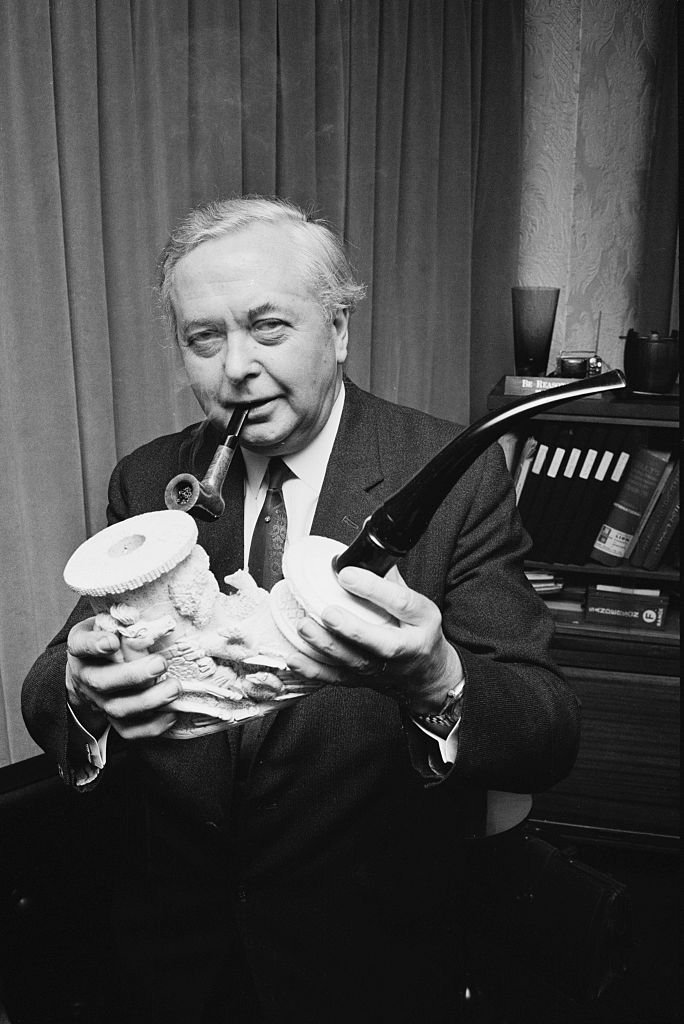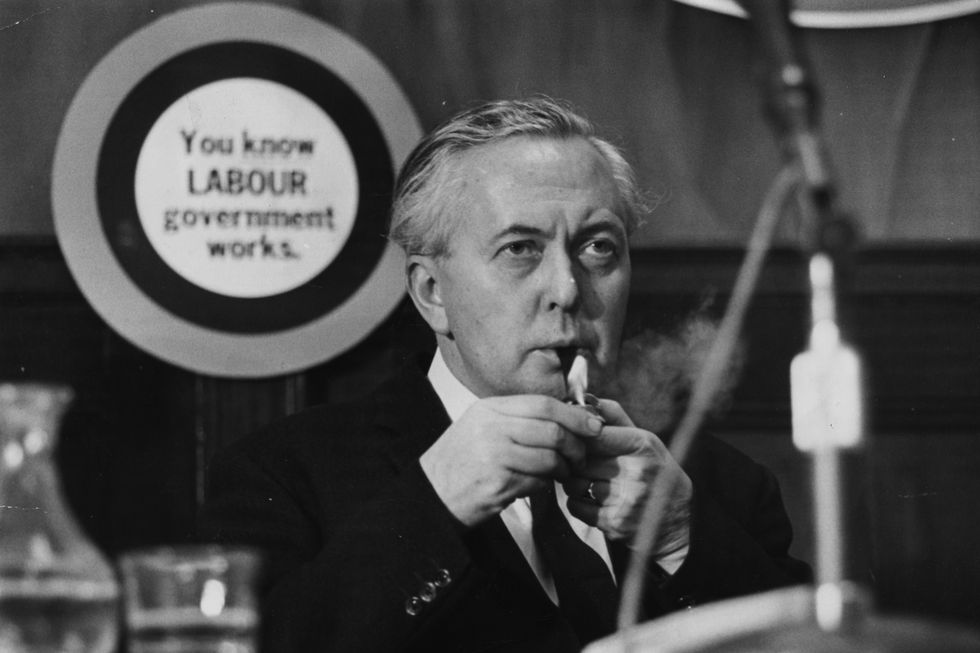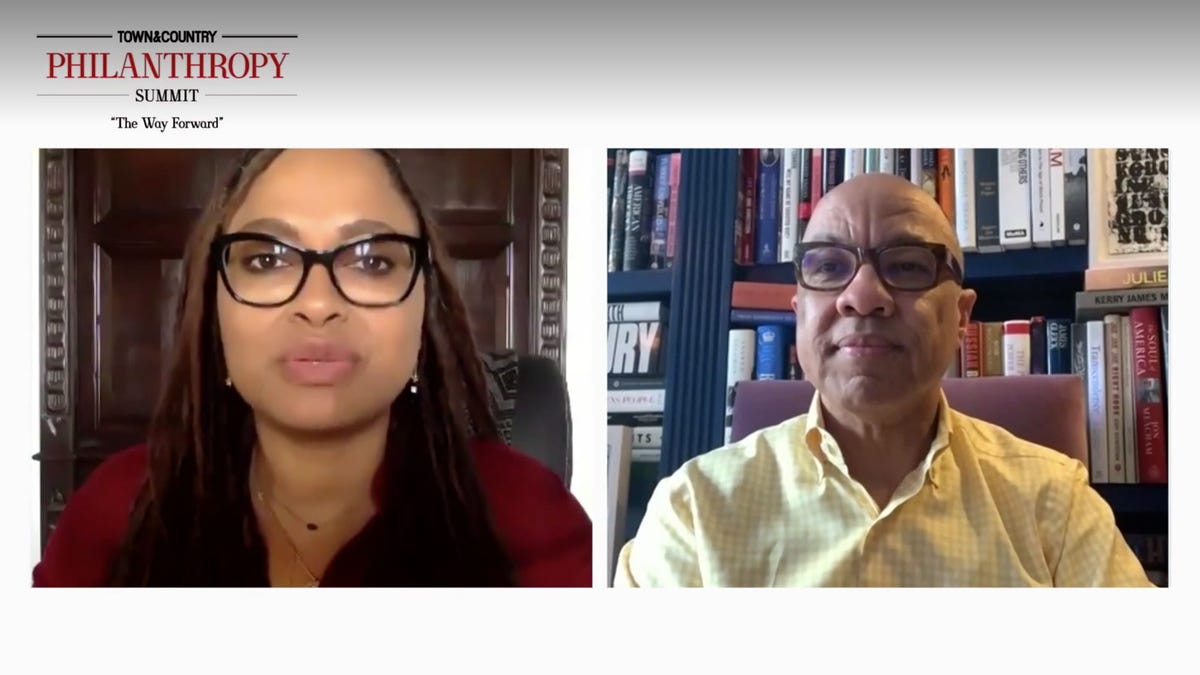While he may not be well-known on this side of the pond, Harold Wilson, who served twice as Prime Minister, is remembered in the UK for his everyman appeal, quirky personality, economic policies, and for his stunning, sudden departure from office. Whether you're curious about his administration, given how the UK is churning through PMs—or, if you're rewatching previous seasons of The Crown ahead of the forthcoming season five, here's what you need to know about him.
Wilson's Background
Born James Harold Wilson on March 11, 1916 in Yorkshire, England, the future Prime Minister wasn't an obvious choice for politics. The son of an industrial chemist and a teacher, he would go on to to become the Queen's first Prime Minister from a lower middle-class background as well as her first Labour Party PM. He attended Oxford, studying history, philosophy, politics, and economics, and at 24 married his sweetheart, Mary Baldwin, with whom he would have two sons.
At the outbreak of WWII, Wilson was drafted into civil service in the war cabinet, then as head of statistics and economics at the Ministry of Fuel and Power. In 1945, he was elected to the House of Commons for the Labour party. Two years later, at the age of 31, he was appointed as President of the Board of Trade, making him the youngest cabinet member in Britain since 1792.
From 1955 to 1961 he served as chancellor in the Shadow Cabinet (a political group in the British government formed by members of the minority party to examine the actions of the Cabinet and offer alternatives), then as Shadow Foreign Secretary from 1961 to 1963. In 1964, he was elected Prime Minister for the first time.
Wilson as Prime Minister
While Wilson's two stints as PM (from 1964 to 1970, and from 1974 to 1976) were marked by liberalizing forces in the U.K., his time in office was also plagued by thorny economic and social issues.
His government supported technological development and worked with MPs to ease laws around censorship and the criminalization homosexuality as well as abolishing capital punishment, and pushing back against the discrimination of women and minorities with legislation like the Equal Pay Act.
In 1969, they helped to establish the Open University, which allowed for flexible part-time study to help more British citizens earn college degrees. Wilson would later call the Open University his greatest achievement as Prime Minister.
However, the U.K. was also suffering from major financial problems, with a £400 million deficit when he took office and a rash of union strikes. He took deflationary measures to try and get the economy under control, cutting public spending and freezing wages, but by 1967, he found himself with no choice but to devalue the pound; it would take two years before the economy began to noticeably recover from the ensuing slump.
He attempted to enter the U.K. into the European Economic Community (EEC) in 1967, but his application was unsuccessful. He was also facing down conflicts in Rhodesia, Northern Ireland, and Vietnam, as well as the Nigerian civil war.
In 1970, Wilson lost his next election and returned to Parliament. After four years he managed to win back his position and moved back into 10 Downing Street in 1974. In his new term, he concentrated his efforts on domestic policy, working on reforms in education, health, pensions, instituting pay regulations, as well as disability rights.
In March of 1976, Wilson shocked the nation by announcing, just five days after his 60th birthday, that he would be retiring as Prime Minister.
Wilson's Relationship with the Queen
Wilson was a decidedly different sort of Prime Minister than the Queen had been served by previously. In addition to being the first Labour Party PM during her reign, Wilson came from a very different social class. Despite his years at Oxford and in the government, he'd retained a distinctive Yorkshire accent and a more relaxed manner than her previous high-born PMs.
Just 10 years older than Her Majesty, he was also much closer in age to the Queen than her previous PMs, all of which together may have helped contribute to the duo's friendly relationship. In the years since his turn in office, Wilson has long been presumed to have been one of the Queen's favorites.
Though the Queen's meetings with her Prime Ministers were always, by their nature, business associations, Wilson enjoyed what he referred to as a "relaxed intimacy" with Elizabeth II. Following their first meeting, she took the rare step of inviting him to stay for drinks, and he was reportedly allowed to smoke his pipe during their audiences. Wilson, for his part, was enormously proud of his association with the Queen and even kept a photo of the two of them in his wallet.
The month after he resigned in 1976, the Queen appointed Wilson to the Order of the Garter, and in 1983 he was created a life peer as Baron Wilson of Rievaulx.
Wilson's Famous Pipe
Perhaps the most indelible public image of Wilson comes along with a pipe in hand or in his mouth. Though Wilson did irrefutably smoke the pipe (he was voted the British Pipesmokers’ Council Pipe Smoker of the Year in 1965) the accessory served multiple purposes—it helped to craft a fatherly, everyman image that played well with the public, and it also offered him something to to do with his hands when he needed to buy time.
"Harold always smoked a pipe on public, on platforms, on Any Questions, if he was appearing in public, that was his father figure image,” Lord Donoughue, who served as a senior aide to Wilson during his second term told The Telegraph in 2013.
“He didn’t smoke it much in private. It was not always lit because he had to put it away in his pocket," he said, adding, "If he was being interviewed or questioned, the moment he was asked a difficult question he would take out his lighter and light the pipe to give him time to think of an answer."
Was He a Russian Spy?
Wilson's possible status as a KGB spy was (and in some quarters has remained) a persistent conspiracy theory.
During his time in office, the British secret service agency MI5 kept a secret file on Wilson under the pseudonym Norman John Worthington, due in part to his pre-politics connections with businessmen in eastern Europe and contacts at the KGB. Though the file was opened back in 1945 when Wilson first entered Parliament and was kept throughout his tenure as PM, he does not appear to have been under active investigation as a possible spy.
The issue, however, is complicated both by Wilson's own statements and the 1987 book Spycatcher by former MI5 agent Peter Wright.
After leaving office in 1976, Wilson spoke with The Observer for a July 1977 article, and shared the claim that a faction in the Service was mounting a "whispering campaign" against him and that he had been bugged. The former Prime Minister's fears of subterfuge don't appear to have started after he left office either; Wilson's authorized biographer Philip Ziegler said that Wilson was also fearful of being listened in on while living at Number 10 Downing Street, particularly in the bathroom where he "pointed at the electric light fitting and made an exaggerated gesture of caution, putting his finger to his lips and indicating that confidential talk would be unsafe."
Similarly, in Spycatcher, Wright alleged that up to 30 senior MI5 officers had plotted in 1974 and 1975 to get Wilson removed from office and destabilize his government by making him out to be a Soviet spy. That said, Wright later backed down from that allegation and altered the book accordingly, following a protracted legal battle to get the book published in the U.K.
Did He Resign Because He Had Alzheimers?
Wilson was suffering from the effects of Alzheimer's disease at the time of his death from colon cancer in 1995, but it's unclear when his deterioration from the disease began. When word of his decline began to spread during the '80s, many wondered if Wilson's failing memory might have been the driving force behind his decision to bow out as PM.
A 2008 study, by neurology researcher Dr. Peter Garrard, examined Wilson's speeches throughout his two terms as PM to look for linguistic changes that could signal a neurological shift associated with Alzheimer's. The study found that there was a marked difference in the vocabulary Wilson used toward the end of his career, as well as a loss of Wilson's distinctive voice that could be an indicator of the early stages of Alzheimer's.
In the decades since Wilson's death, other evidence has emerged that suggests the former PM was having noticeable memory lapses within years of exit from office. A 1986 memo to the Prime Minister from the office of then-foreign secretary Geoffrey Howe stated that “Lord Wilson’s failing memory and increasing tendency (demonstrated in his last visit in 1983) to indulge in irrelevant and repetitive reminiscence at meetings,” would become a problem if the retired PM were allowed to travel to Russia on business interests.

Lauren Hubbard is a freelance writer and Town & Country contributor who covers beauty, shopping, entertainment, travel, home decor, wine, and cocktails.
